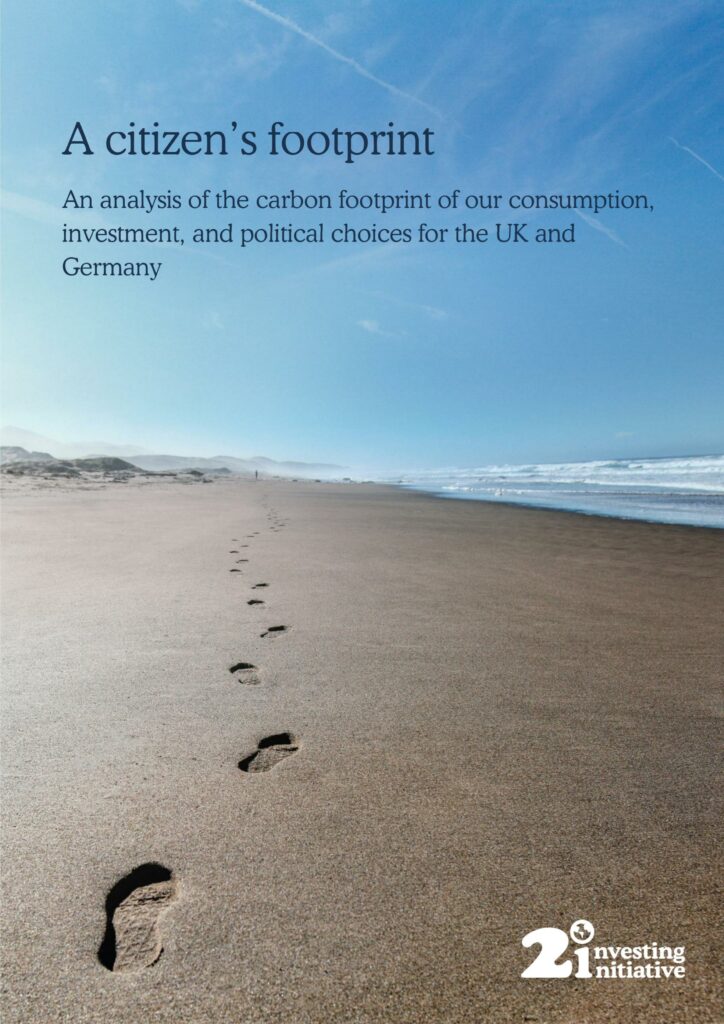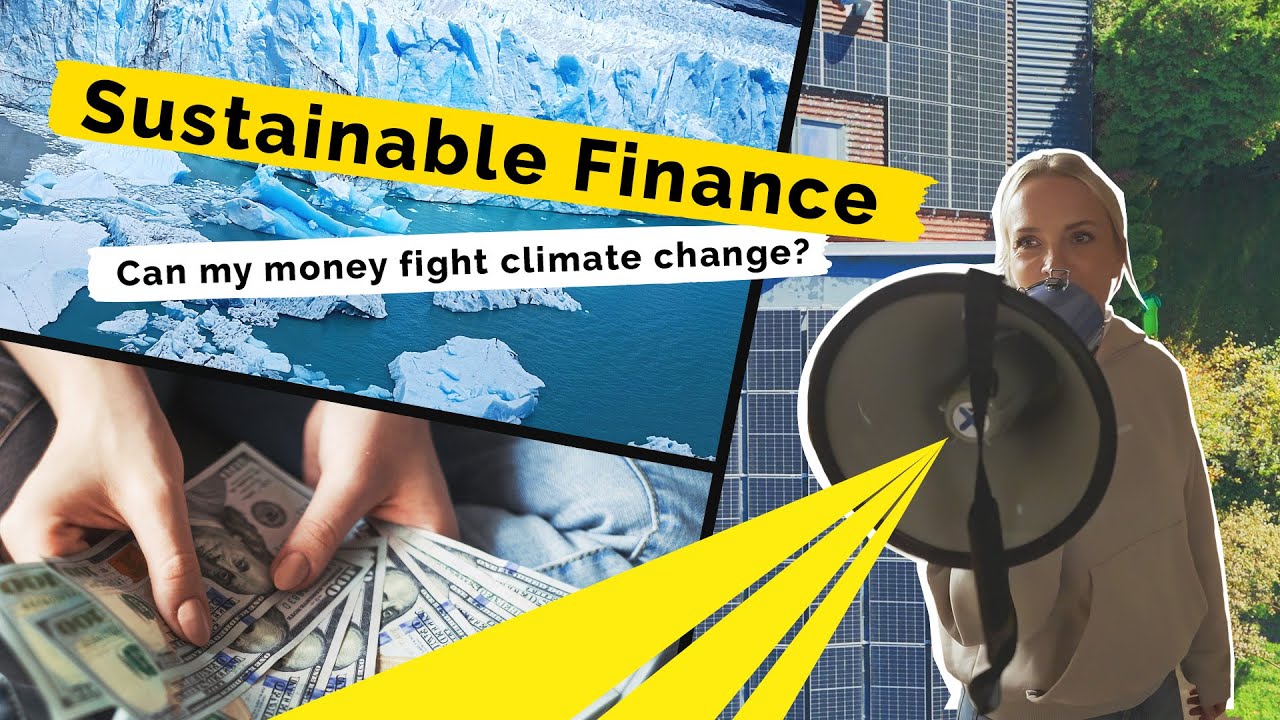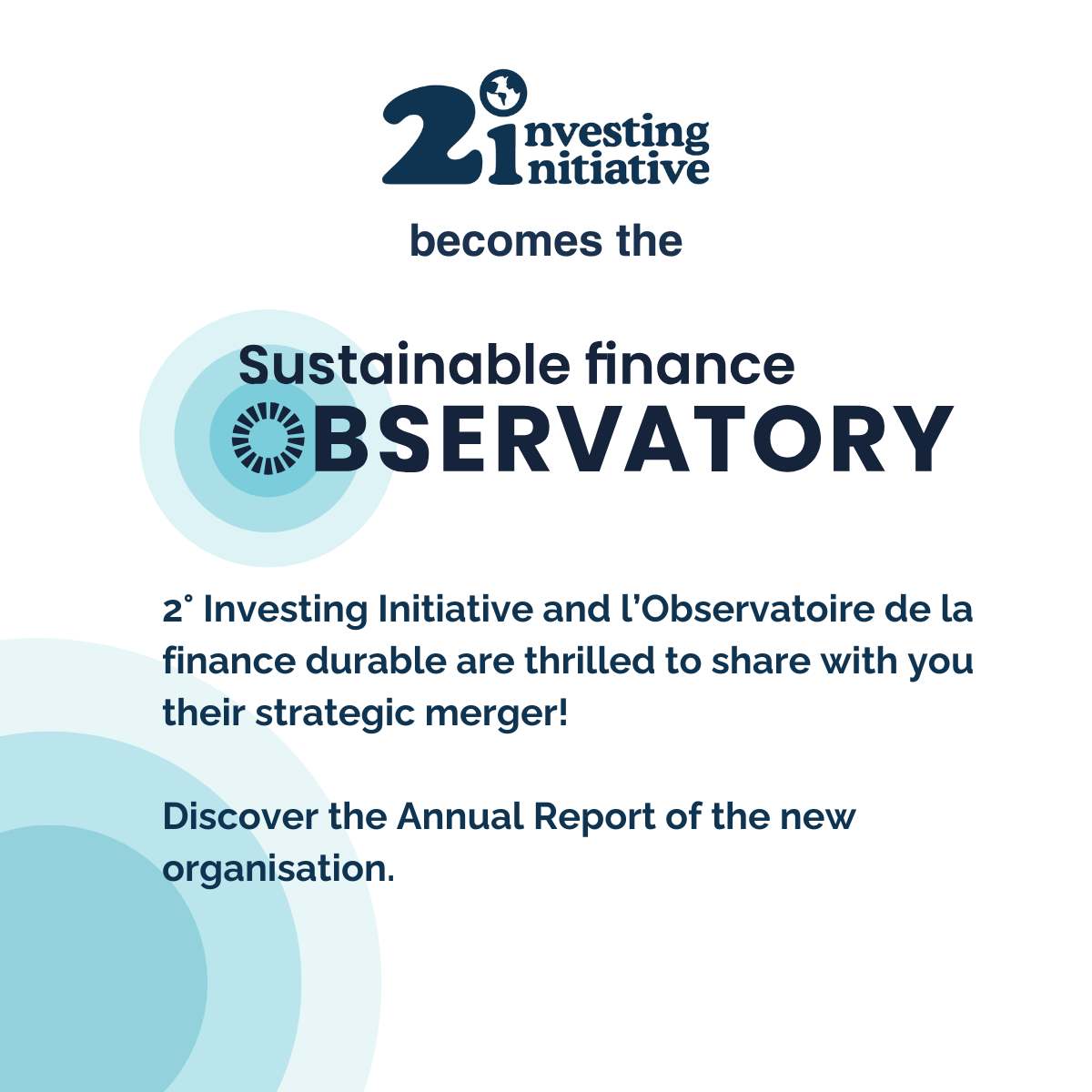Ahead of German elections on September 26th, Sustainable Finance Observatory (formerly 2DII) finds in a new study that voting for climate-friendly parties can be the most important action a German or UK citizen can take to reduce their carbon footprint. While reducing your consumption footprint has a larger per capita effect than going to the polls, voting for a successful majority party can determine climate outcomes for the entire country. This makes voting the largest potential individual contributor to reducing the overall footprint of your voting, investment, and consumption choices.
Sustainable Finance Observatory’s (formerly 2DII) analysis finds that voting for a climate-friendly party can reduce the carbon footprint of an individual’s voting choice by almost 7,000 kgs of CO2 per year. This compares to around 2,900 kgs of CO2 per year through a combination of going vegan, switching to a zero-carbon electricity provider, cutting out air travel, and switching from a petrol to an electric car. A typical UK citizen will reduce an additional 2,700 kgs of CO2 per year by switching to a low-carbon equity pension plan.
A key driver of this outcome is the fact that changing consumption patterns will ‘only’ reduce your own footprint, while voting in elections can realize policies that change the footprint of an entire country – including for those voters that voted against climate policies.
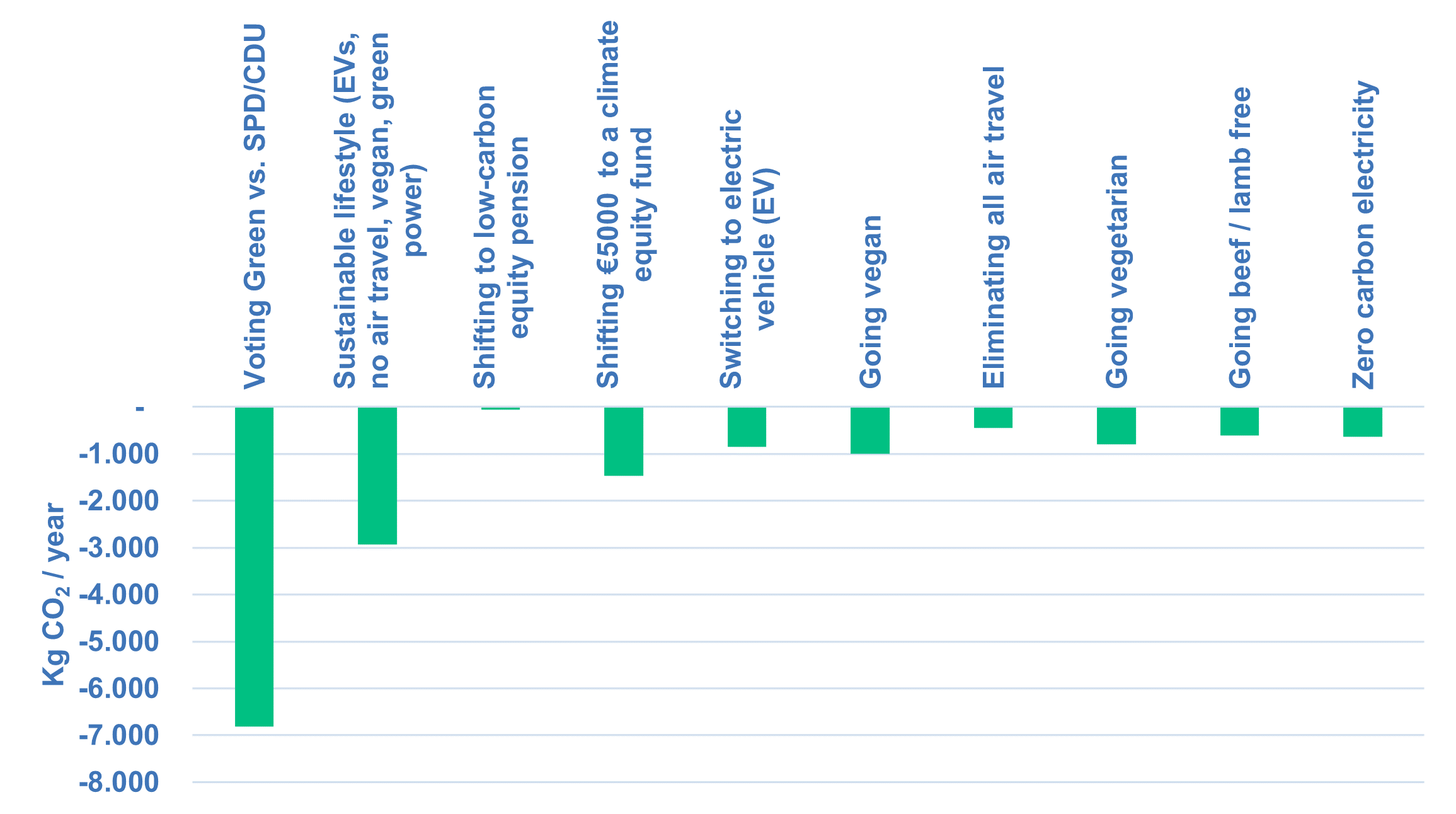
Fig. 1: Differences in the emissions footprint of an individual in Germany related to voting, consumption, and investment choices (Source: Authors based on various sources, see Annex)
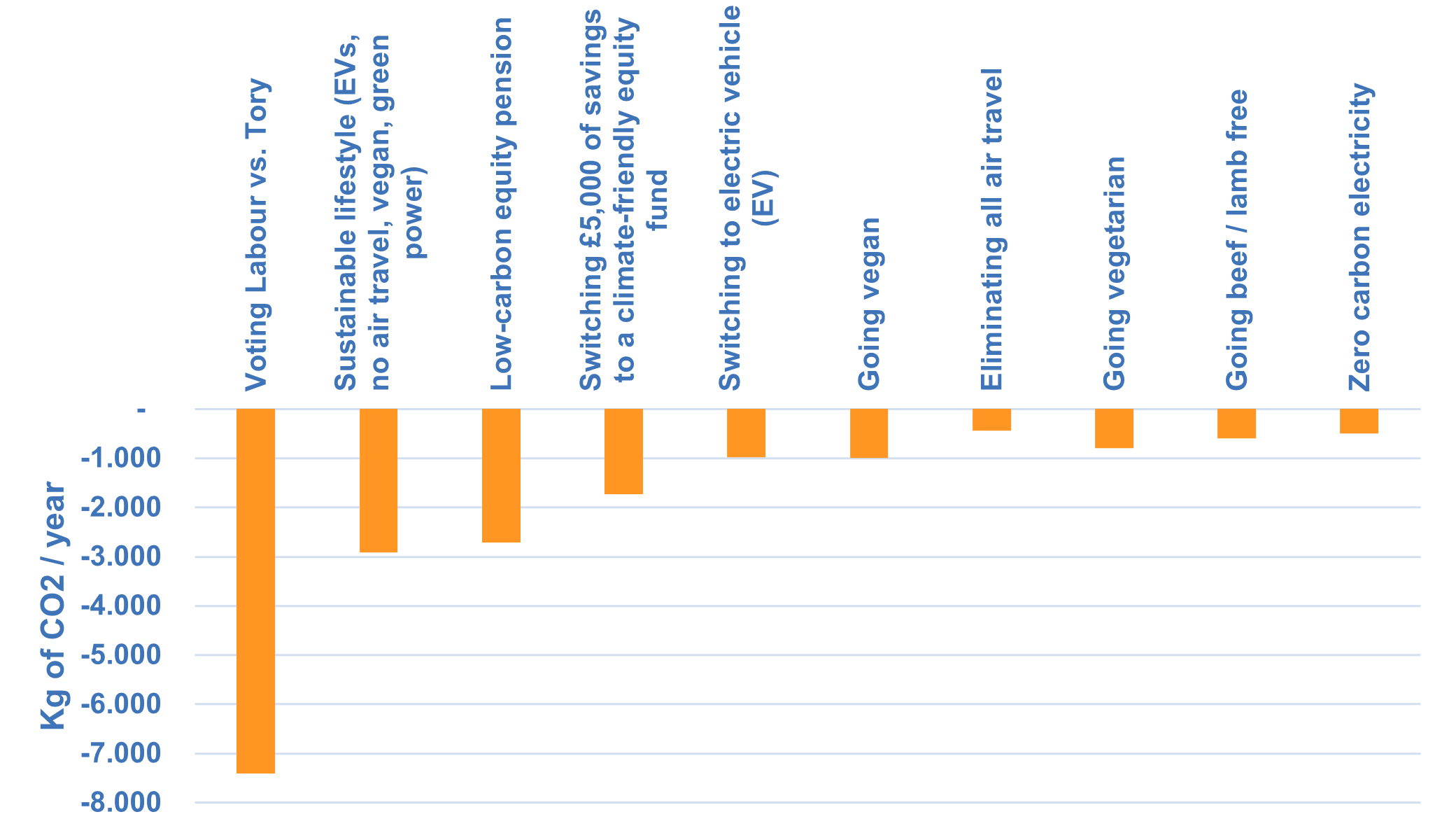
Fig. 2: Differences in the emissions footprint of an individual in the UK related to voting, consumption, and investment choices (Source: Authors based on various sources, see Annex)
More on the report & key qualifications
We recognize the risks and shortcomings of comparing different carbon footprints across different activities, and have written about the extent to which such comparisons can be problematic in the case of misleading environmental marketing claims. The study does not argue that people should choose one action over the other or that consumption choices should be ignored in favour of voting. Nor does it suggest that the carbon footprint is necessarily a proxy for your real world impact. Rather, it provides a way to think about the impact of different actions on your personal carbon footprint.
Crucially, reducing your own carbon footprint (whether it involves voting, consuming, or investing) does not necessarily translate into real-world emissions reductions. Voting for a climate-friendly party that doesn’t join the government reduces the personal carbon footprint of your voting behaviour, but not necessarily that of the country. The same is true for reducing the carbon footprint of your portfolio by simply selling high-carbon companies to other actors. The study explores the need for collective action in order to translate the reduction of a personal carbon footprint into real world changes.
Complementing this analysis, Sustainable Finance Observatory (formerly 2DII) has also been working on ways to help consumers invest more sustainably. Last year, Sustainable Finance Observatory (formerly 2DII) launched a free sustainable investing resource platform, MyFairMoney, which will be launched in the French and English markets later this year.
An attempt to extend carbon footprinting across voting, consumption, and investment choices
This study is the first attempt known to the authors to compare an individual’s carbon footprint across their voting, investment, and consumption choices as part of a single integrated exercise. While footprinting individual choices has a long track record in environmental accounting, so far this has largely been limited to consumption. However, individuals can affect climate outcomes in different ways, whether as voters, consumers, investors, etc. This study is an effort to tie these different strands together.
About our funder: This report has received support from the Life NGO program under Grant No LIFE20 NGO/SGA/DE/200040. This content reflects the views of the author only, and the funders are not responsible for any use that may be made of the information it contains.

